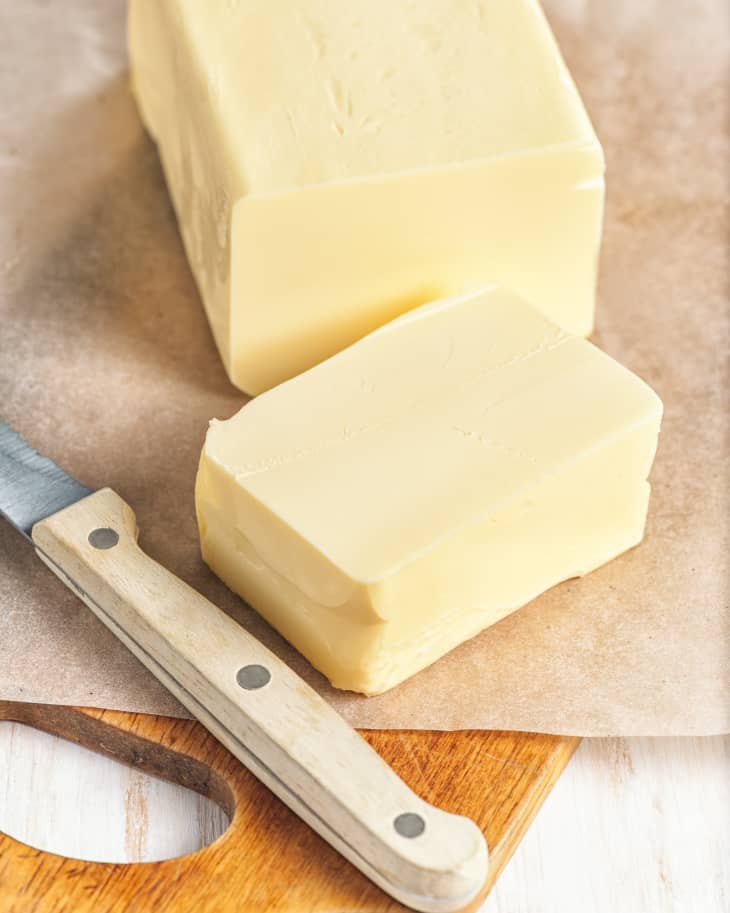Does Butter Really Need to Be Refrigerated?
One of my favorite simple pleasures in the morning (or any time, really) is a warm piece of toast slathered with butter. I love it — like, really love it — so it breaks my heart just a little when I find myself with a pat of too-cold butter that’s simply incapable of being spread. The kind of cold butter that requires force; the kind of force that smashes down a once-soft-in-the-middle piece of toast. But worry no more: you can keep butter in a covered dish or a crock and leave it at a stable room temperature.
Storing Butter
A simple solution would be to keep my covered butter dish out on the counter or in a cupboard, where the butter stays room temperature and perfectly spreadable at all times. But for some reason I just haven’t been able to do it, which makes me wonder: Does butter really need to be refrigerated?
Perhaps, like me, you store butter in the fridge simply out of habit, because that’s how you were raised and it’s what you continue to do now. Or maybe your reasons for refrigeration are because you believe it’s safer. But is it, really?
There is much debate about the best place to store butter. Some argue that keeping it in a covered dish or a crock — tucked away in a cabinet or on the counter — is just fine, while others are staunchly against that and only keep it in the fridge.
Is It Bad to Leave Butter Out?
Think about the other common dairy products in your kitchen. Milk, cream, and yogurt are all stored in the refrigerator without question. Left at room temperature, it doesn’t take long before they start to spoil.
Butter is, after all, made from cream, so there is logic in thinking that it, like cream, should also be stored in the fridge — but there’s a difference. The primary component of butter is fat (at least 80 percent). High fat combined with low water content make for a less-suitable environment for bacterial growth.
The other concern is that butter left out for too long will eventually go rancid. This won’t, however, happen overnight, or even in a few days time. And when it happens, you will know right away. The butter will smell off, and should you proceed to taste it, it will definitely taste off. If that happens, it’s simply time to toss it.
Leave It Out, but Not for Too Long
While most brands of commercially sold butter recommend storing butter in the refrigerator, the FDA and USDA don’t take as firm a stance on this item as they do with other dairy products. They’ve even suggested a lenient stance that butter, when properly covered, is okay to be left at room temperature for a couple days.
Food scientist Harold McGee also agrees that keeping butter at room temperature for a few days is just fine. He notes that because of its low water content, butter is able to resist contamination by microbes.
Tips for Leaving Butter at Room Temperature
For long-term storage, it is still safest to store butter wrapped or covered in the refrigerator. But for spreadable butter bliss, a small amount can be stored, fully covered, at room temperature — with a few caveats.
Factors leading to spoiled butter are exposure to air and light, so keep it in a covered butter dish or butter crock that will protect it from both air and light, and help to keep it at a steady temperature to stay cool enough to hold its shape.
The climate where you live is also an important factor, with cooler climate areas being more favorable to room-temperature storage. If the temps in your kitchen go much above 70°F, it’s best to leave butter in the fridge.
When left at room temperature, salted butter fares better than unsalted, as the salt content also makes it less prone to bacterial growth.
Really, it comes down to personal preference; if soft, spreadable butter is what you prefer, go ahead and keep your butter at room temperature. Just be sure to keep it covered and use it within a few days. And to play it safe, keep out just the amount you think you’ll use in a few days, then replenish the butter dish.
We want to know: Where do you store your butter?
